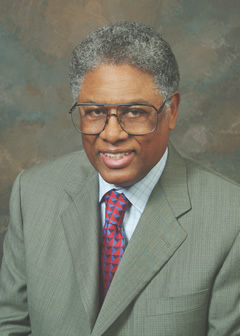
Today's panel reminded me of a song by They Might Be Giants...
This particular performance was done in Charlottesville!
Political, philosophical, and theological reflections from a Christian idealist with libertarian leanings and a professional interest in science and mathematics.

Hear my words, you wise men,
and give ear to me, you who know;
for the ear tests words
as the palate tastes food.
Let us choose what is right;
let us determine among ourselves what is good.Job 34:2-4
Just as I am Thou wilt receive"Because Thy promise I believe." That really sounds like bringing something to God. There's a paradox here. We are told that we bring nothing before God, and that we need to recognize this fact. But is not the recognition of this fact actually something we bring before God?
Wilt welcome, pardon, cleanse, relieve
Because Thy promise I believe
O Lamb of God, I come...
 I'm not afraid to admit when I might be wrong, and health care is one issue where I might be wrong.
I'm not afraid to admit when I might be wrong, and health care is one issue where I might be wrong.The emphasis in the last paragraph is mine. For some reason that sentence triggered a suspicion in me that perhaps there are theoretical problems with the system as we have it.Mr. Potter says he liked his colleagues and bosses in the insurance industry, and respected them. They are not evil. But he adds that they are removed from the consequences of their decisions, as he was, and are obsessed with sustaining the company’s stock price — which means paying fewer medical bills.
One way to do that is to deny requests for expensive procedures. A second is “rescission” — seizing upon a technicality to cancel the policy of someone who has been paying premiums and finally gets cancer or some other expensive disease. A Congressional investigation into rescission found that three insurers, including Blue Cross of California, used this technique to cancel more than 20,000 policies over five years, saving the companies $300 million in claims.
...
Mr. Potter notes that a third tactic is for insurers to raise premiums for a small business astronomically after an employee is found to have an illness that will be very expensive to treat. That forces the business to drop coverage for all its employees or go elsewhere.
All this is monstrous, and it negates the entire point of insurance, which is to spread risk.
 Apparently the Myers-Briggs test is now all the rage on Facebook, reducing the once esteemed psychological survey to a time waster for people to post on their profile pages.
Apparently the Myers-Briggs test is now all the rage on Facebook, reducing the once esteemed psychological survey to a time waster for people to post on their profile pages. This op-ed I just read by Robert Wright reminded me that while I seek to have a faith in God that is compatible with modern science, there are certain compromises that leave me empty.
This op-ed I just read by Robert Wright reminded me that while I seek to have a faith in God that is compatible with modern science, there are certain compromises that leave me empty.Oddly, an underestimation of natural selection’s creative power clouds the vision not just of the intensely religious but also of the militantly atheistic.
The first step toward this more modern theology is for them to bite the bullet and accept that God did his work remotely — that his role in the creative process ended when he unleashed the algorithm of natural selection...Unfortunately, this theology is not at all new. It's just Deism, straight out of the Enlightenment. This might be an appealing religion for some people, but it's not Christianity--it's not a story about a God who comes into the world to redeem it and make all things new.
A more evolved religion could do what religion has often done in the past: use an awe-inspiring story to foster social cohesion — except this time on a global scale.Something inside me trembles when I hear the words "social cohesion." Doesn't anybody read Brave New World and get freaked out? Human beings do not become what they're supposed to be simply by living "cohesively" with one another.
William James said that religious belief is “the belief that there is an unseen order, and that our supreme good lies in harmoniously adjusting ourselves thereto.”I just don't agree. I am compelled by my religious faith to believe not merely in unseen order, but in unseen fury, the kind that can so easily be caricatured into this quaint little image of a God distributing people into heaven and hell.
Parents Rate Schools Much Higher Than Do Americans Overall
Parents Rate Schools Much Higher Than Do Americans Overall
Little change in recent years
by Frank Newport
PRINCETON, NJ -- Three in four American parents (76%) are satisfied with the education their children receive in school, compared to 45% of the general public who are satisfied with the state of schools nationwide. These findings from Gallup's annual Work and Education survey are almost identical to what Gallup found last year, and have not changed materially since 2003.
Axiom. A parent who is dissatisfied with his own child's education is also dissatisfied with education as a whole.
Proof: Let S be the set of all parents satisfied with education as a whole, and let P be the set of all parents who are satisfied with their own children's education. By the contra positive of the above axiom, S is a subset of P. Therefore, it follows that the size of S is less than the size of P.QED
"Despite what Obama said, the House bill would allow abortions to be covered by a federal plan and by federally subsidized private plans."
"President Obama has repeatedly said that under the health care overhaul efforts in Congress, 'if you like your health care plan, you keep your health care plan.' But he can’t make that promise to everyone.
- In fact, under the House bill, some employers might have to modify plans after a five-year grace period if they don’t meet minimum benefits standards.
- Furthermore, some firms are likely to buy different coverage for their workers than they have now, or simply drop coverage and pay a penalty instead, leaving workers to buy their own private coverage or go on a new federal insurance plan."
 About a week ago I wrote a weird little post about "unity and continuity in creation." Just as I said, that post was meant to be continued, and I think here's where I get to what I'm really thinking about.
About a week ago I wrote a weird little post about "unity and continuity in creation." Just as I said, that post was meant to be continued, and I think here's where I get to what I'm really thinking about. This is just a meditation that's been percolating in my brain the past several days.
This is just a meditation that's been percolating in my brain the past several days. There really is only one universe. What is a human? A human is a continued allocation of the matter in the universe into a thinking, feeling, relational being. We are part of a whole.
There really is only one universe. What is a human? A human is a continued allocation of the matter in the universe into a thinking, feeling, relational being. We are part of a whole. We long to see heaven on earth. As a Christian, I believe we will see it. But the only way we can make ethical decisions is to both desire to see heaven unleashed and then to act. Theoretical concerns do not make an action ethical or not.
We long to see heaven on earth. As a Christian, I believe we will see it. But the only way we can make ethical decisions is to both desire to see heaven unleashed and then to act. Theoretical concerns do not make an action ethical or not.
Someone pointed out that blaming economic crises on "greed" is like blaming plane crashes on gravity. Certainly planes wouldn't crash if it wasn't for gravity. But when thousands of planes fly millions of miles every day without crashing, explaining why a particular plane crashed because of gravity gets you nowhere.
Neither does talking about "greed," which is constant like gravity.

"For in much wisdom is much vexation,
and those who increase knowledge increase sorrow."Ecclesiastes 1:18
 So lately a lot of religious questions have been on my mind, and at the root of all of them is this fundamental question about how Christians approach scripture. This question is so basic that it usually just gets passed over.
So lately a lot of religious questions have been on my mind, and at the root of all of them is this fundamental question about how Christians approach scripture. This question is so basic that it usually just gets passed over. Now apparently some environmentalists aren't so sure about this whole "Cash for Clunkers" business. Fox News (who else?) reports on some of the potential screw-ups:
Now apparently some environmentalists aren't so sure about this whole "Cash for Clunkers" business. Fox News (who else?) reports on some of the potential screw-ups:"Disposing of old products, a step required by most incentive and rebate programs, also has environmental costs," Gwen Ottinger, a researcher at the Chemical Heritage Foundation's Center for Contemporary History and Policy in Philadelphia, wrote in an opinion article published in The Washington Post on Tuesday.
"It takes energy to shred and recycle metals; plastic components often cannot be recycled and end up as landfill cover; and the engine fluids, refrigerants and other chemicals essential to operating products end up as hazardous wastes," she wrote.
...
"Cash for clunkers is a historic mistake for America because it misapplies billions of taxpayer dollars to subsidize more fuel inefficient cars that are bad for our dependence on foreign oil and bad for the environment," said Edwin Black, author of "The Plan: How to Save America When the Oil Stops -- or the Day Before."
Black told FOXNews.com that lawmakers had the right idea to get more fuel efficient vehicles on the road but executed it poorly. He said it's too early to say how many vehicles purchased get 18 to 20 mpg rather than 30 to 35 mpg.
 I guess it just gets to me a little to see things go to waste. Anyone who knows me knows I always eat everything on my plate, I drive a car that gets at least 35 miles a gallon, and I pretty much never spend anything that wasn't already in my budget.
I guess it just gets to me a little to see things go to waste. Anyone who knows me knows I always eat everything on my plate, I drive a car that gets at least 35 miles a gallon, and I pretty much never spend anything that wasn't already in my budget.